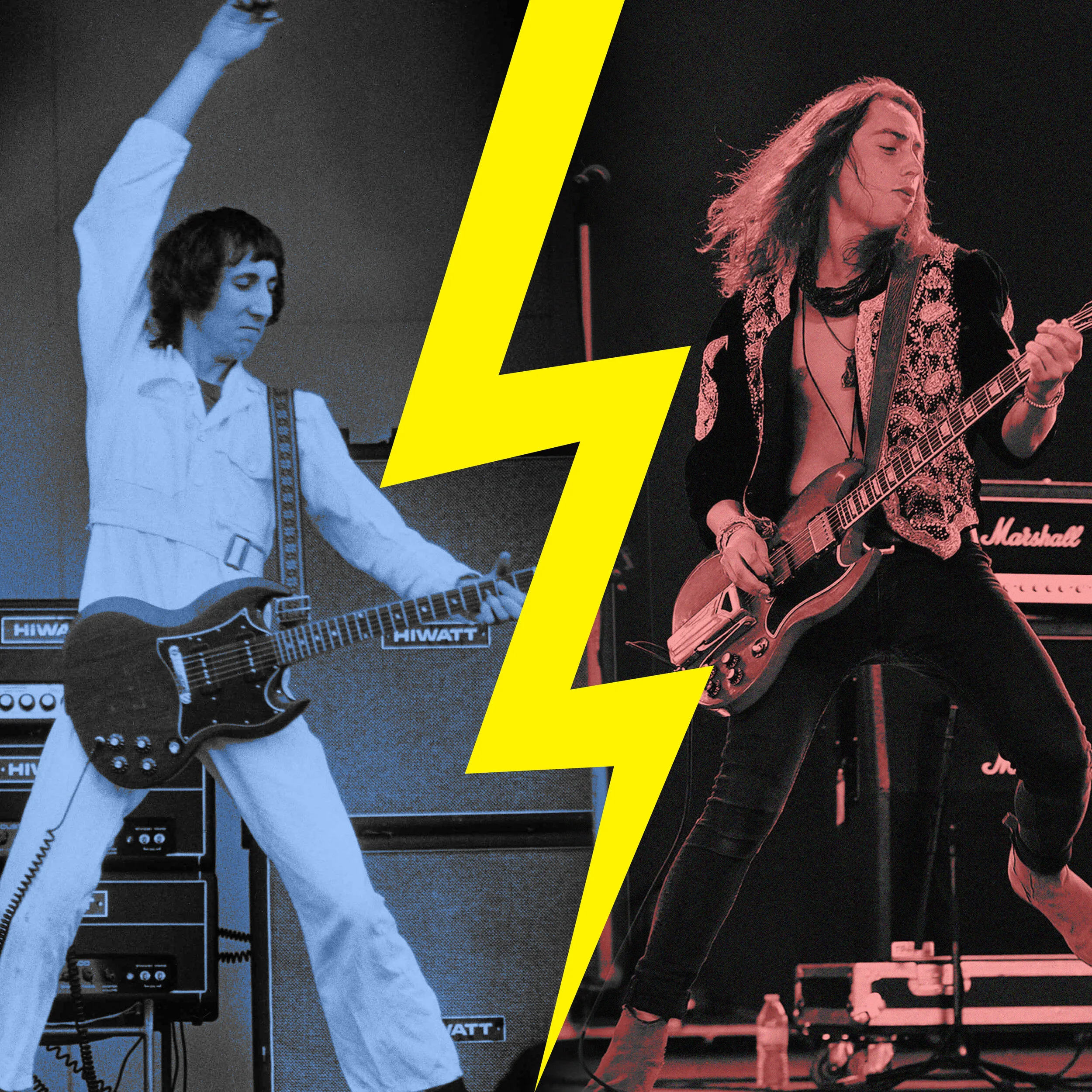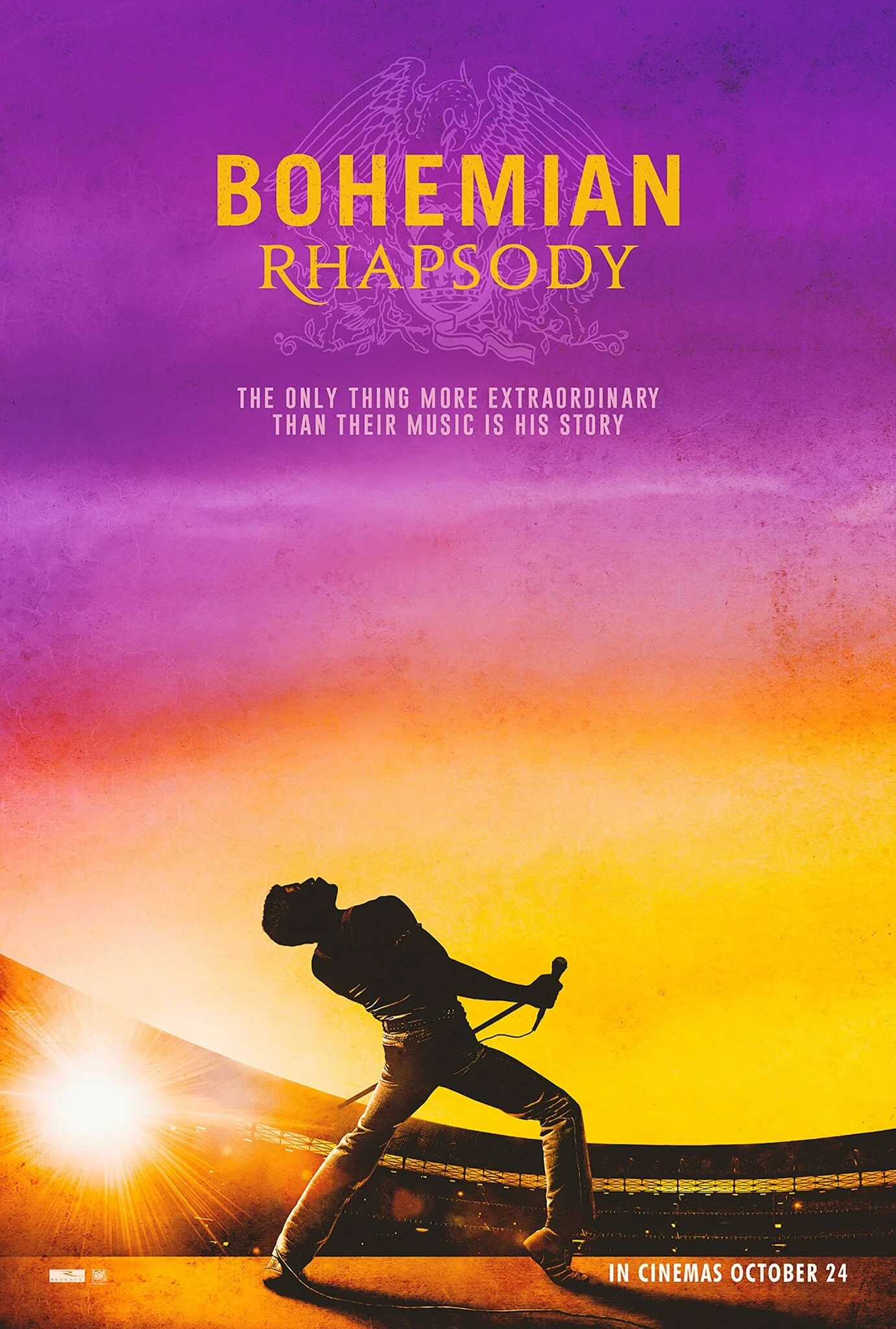The Resurgence of Rock and Roll
Visual Created by Mason Brown // @mmasonbrown
It’s been nearly thirty years since rock ’n’ roll left the music industry spotlight. Thirty long, painful years. Since then, we’ve been subject to a mostly mixed bag of content coming from the genres of hip hop, EDM, indie, and, of course, the current reigning king of all genres: pop. And all the while, rock music (much less classic rock) has been left to survive in the shadows of the underground, kept alive only by die-hard fans of the genre. Chances are, if you’re reading this article, you are one of these fans (or at least a fan of the genre). Maybe you have hope for rock to “reclaim its throne,” maybe you don’t. But surely, you’ve seen the many, many articles circulating music journalism about how rock is “officially dead” and not coming back. Seriously, it’s almost become an obsession for some to spread the Rock is Dead notion—these being the same people to tell us that we should get over it and that anyone still holding out hope for rock’s comeback is either naive or willfully blind.
For a time, it certainly may have seemed that way, but, to paraphrase a Scorpions song, the wind of change is here. And we’re all about to be swept away.
Don’t believe me? Just take a moment to think about the classic rock bands of old, because it’s true that the first signs of this resurgence can be seen with those responsible for rock’s epic legacy. For a great example of this, we can take a look at the massively successful biopics that have been coming out in recent years. What began with the blockbuster hit, “Bohemian Rhapsody” (Queen), has continued with “Rocketman” (Elton John), “Lords of Chaos” (Mayhem), and “The Dirt” (Netflix’s film about legendary 80s band Mötley Crüe). Yet it doesn’t stop there. Following the success of these movies, there are rumors about even more biopics to come, including ones about Motörhead, Bob Dylan, and Heart. (If we’re lucky, maybe someone will recognize the wealth of insane storytelling material and make one about Guns N’ Roses, as well. That would certainly make my year.) But whatever bands end up having biopics made, I’ll be happy for them, because each new film is not only a success for that band themselves, but also for the genre of rock itself. Biopics reach a wide array of audiences, catering to both people who already know and love the bands they’re about and to people who simply enjoy watching movies—therefore spiking re-interest in rock bands through nostalgia as well as through exposing new audiences to rock ’n’ roll.
What is even more important than the emergence of biopics is another phenomenon happening directly alongside it: reunion tours. One such reunion tour is that of none other than Mötley Crüe, who, sometime after the explosive popularity of “The Dirt,” finally decided to come back together and will be touring come this summer of 2021. Which, considering how many times they said they’d never, ever tour again, is a pretty big deal. Other big bands that have recently been touring, or have recently reunited with plans to tour, include My Chemical Romance, The Doobie Brothers, Rage Against the Machine, Kiss, Ozzy Osbourne, Lynyrd Skynyrd, Bon Jovi, Def Leppard, Bob Seger, Deep Purple, The Who, and Tool (whose newest album, Fear Inoculum, actually beat out Kanye West’s Jesus Is King in the first week of its release—no small feat, to say the least). But no reunion or tour was quite as exciting, or surprising, like that of Guns N’ Roses—the band whose core members had been separated for more than two decades finally got back together in 2016 and are still going strong with their famously titled “Not In This Lifetime” tour (so far having played for over 5.5 million worldwide). Their success, and the success of all the other classic rock reunions, has shown that people are very much not done with rock ’n’ roll—no matter what any elite, self-important music journalists have to say.
To continue on this wonderful, thrilling path of revival, rock ’n’ roll has one vitally important task it must accomplish: gaining back the younger generation. It’s no secret that youth culture controls the trends of the music industry. It’s also no secret that rock ’n’ roll fell out of style with young people a long time ago. So how can rock fix this glaring issue? Well, the answer lies in giving young people a personal connection to it. This isn’t to say that there aren’t young people out there who currently have a deep, personal, and important connection to rock music, but it is to say that there aren’t enough of them. For rock to come back, to truly come back, we need it to somehow regain a focus in the mainstream media and public eye. And to make that a possibility, we need something more than the growing interest in the stories of classic rock bands and their reunions. That is all great stuff, don’t get me wrong, but it’s not enough. It’s not enough, because what we need is something to make the genre of rock relevant to the here and now. What we need… is new music.
This brings us to what is arguably the most important phenomenon currently going on in the rock community: the appearances of new, up-and-coming rock bands. This is what makes it such an exciting time for fans of rock ’n’ roll—the fact that there is a growing interest in classic rock at the same time that there are new rock bands on the rise.
Some of these bands have a modern, new-age rock sound—such as Highly Suspect or The Interrupters—while some make you forget what decade you’re in with their sound heavily influenced by their classic rock roots—such as Dirty Honey, Joyous Wolf, and Greta Van Fleet. You don’t often hear them on the radio, nor do you (generally) witness them being acknowledged by popular music awards, but this doesn’t mean they aren’t being heard. For example, both Highly Suspect and Greta Van Fleet have Instagram followers and Youtube subscribers in the hundred thousands, along with music videos that frequently reach views well-into the millions. The Interrupters is much the same, with some of their music videos hitting past the ten million mark. Meanwhile, Dirty Honey has found impressive success through Youtube as well as through opening for Guns N’ Roses, Slash, and The Who. But—aside from their growing success—they all possess something else that connects them, something far more important than where they’ve performed or the number of views and followers they have: their talent and genuine love for what they do.
It is with this talent and passion that these new bands will be the key to rock’s future, ensuring that exposure to rock will no longer be something young people must rely on getting from the musical tastes of their parents. Instead, having these newer, younger bands will open up the essential opportunity for younger audiences to have their own connection to rock as a genre. Won’t that be amazing?
After all, if you love rock music, then you know what it can do. You know the absolute joy and powerful emotion it can evoke—playing your heartstrings the same way it plays a guitar. Perhaps you’ve wondered what it would be like if everyone else knew, too. And if things keep going the way they are, it looks like someday soon, you’re going to find out.


